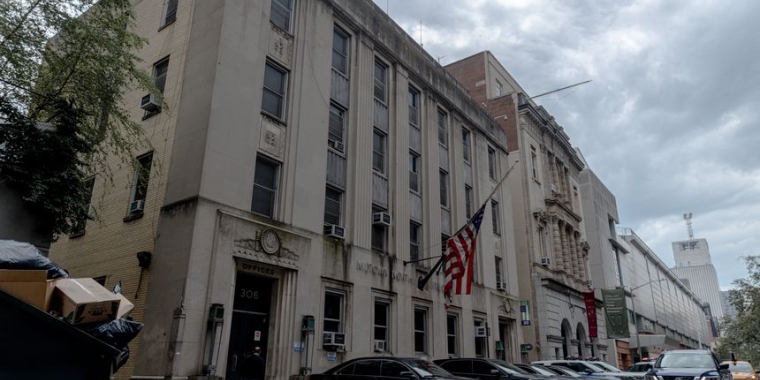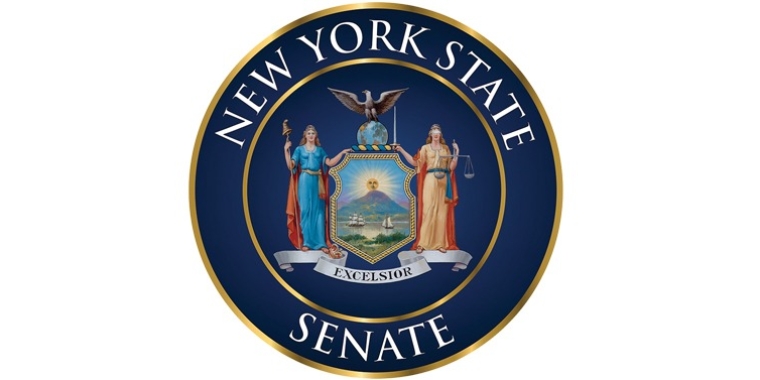
WSJ: New York’s ‘Problem-Solving’ Courts Were Shuttered by Covid. They Haven’t Rebounded.

The Midtown Community Court connects low-level offenders with relevant social services.
New York officials are pushing for a “problem-solving” court near Times Square to step up its operations after the number of cases it handles dwindled as a result of the Covid-19 pandemic and changes to the state’s criminal-justice laws.
The Midtown Community Court reopened slowly after a two-year closure, starting with one day a week for mental-health cases in March of 2022. It is now open a second day each week to process young adults charged with low-level offenses such as harassment. Since the reopening, around 250 cases have been referred to the court, where defendants are connected with social services when they appear.
That is a far cry from the 8,964 cases that were handled at the court in 2019, when people charged with quality-of-life crimes in a large part of Manhattan were sent there five days a week.
Midtown was one of the first so-called problem-solving courts in the nation when it opened in 1993, and the state has replicated the model to address people who repeatedly commit low-level crimes because they lack permanent housing or are struggling with mental-health issues or substance abuse.
Special courts handling drug, mental-health and veterans’ issues across New York state have also declined in usage since the pandemic. There were 1,809 cases in those courts in 2022 compared with 6,096 in 2019, according to the state’s Office of Court Administration.
As a result, officials are missing a chance to connect many low-level offenders with housing, drug counseling or other services that might remove them from the streets and stop subsequent offenses, said Brad Hoylman-Sigal, a Democratic state lawmaker from Manhattan. He is pushing to expand the Midtown court’s operations and said its closure forced officials to fight quality-of-life crimes with one hand tied behind their backs.
“It’s a waste of resources not to have it fully operational,” he said. “It’s in a neighborhood, including Times Square, where these problems persist and have become even more apparent in the wake of Covid.”
On a Friday last spring, a handful of defendants were greeted by Judge John Zhuo Wang, who thanked them for coming. He adjourned their proceedings while they went upstairs to meet with a social worker.
The defendants were all part of a special program for people with mental-health disorders accused of misdemeanors. Danielle Mindess, who oversees the court for the nonprofit Center for Justice Innovation, which partners with the state, said the space and services are better for people who have experienced trauma.
Of the 168 people referred to that program since March 2022, 89 completed an assessment with a social worker, she said. Almost all of them completed the program, while the remaining defendants were mostly issued arrest warrants for failing to appear, according to Ms. Mindess.
It is hard to compare the case numbers to prepandemic operations, Ms. Mindess said. She said that type of defendant is hard to reach and she is heartened by the completion rate of those who show up. Officials said that arraignment at Midtown was an opportunity to connect people with social services they might not otherwise receive.
Separately, summonses for low-level offenses comprised a large part of Midtown’s prepandemic activity. It recently began handling those cases again—but only for defendants between 18 and 25 years old. There have been 72 such cases in the first several weeks.
The percentage of people released in New York City with these summonses—akin to a traffic ticket—has increased since 2019, when state lawmakers eliminated cash bail for most misdemeanor and nonviolent felony offenses, according to statistics compiled by the New York City Criminal Justice Agency.
The law took effect at the start of 2020, but it is difficult to disentangle its effect on how arrests were processed from the pandemic-related court shutdowns starting that March.
Tina Luongo, who oversees the criminal defense practice at the Legal Aid Society, which represents indigent defendants, said the court needed to change its operating model. In the court’s early years, many of the cases it handled included petit larceny or prostitution—offenses for which police now rarely make arrests.
“I don’t think Midtown is obsolete. I do think we should be having conversations about what’s next,” said Mx. Luongo, who uses the gender-neutral honorific.
The Legal Aid Society supports a Democratic-authored bill in Albany that would expand funding for mental-health courts around the state and allow people to participate without pleading guilty to an offense. Connection to social services in a court is good, Mx. Luongo said, but it would be better to get people help completely outside the criminal-justice system.
Ms. Mindess said the court is trying to offer services at police precincts where people are issued appearance tickets. She also wants to expand existing community outreach programs to check in on people with pending cases. Both initiatives, she said, would require more funding.
